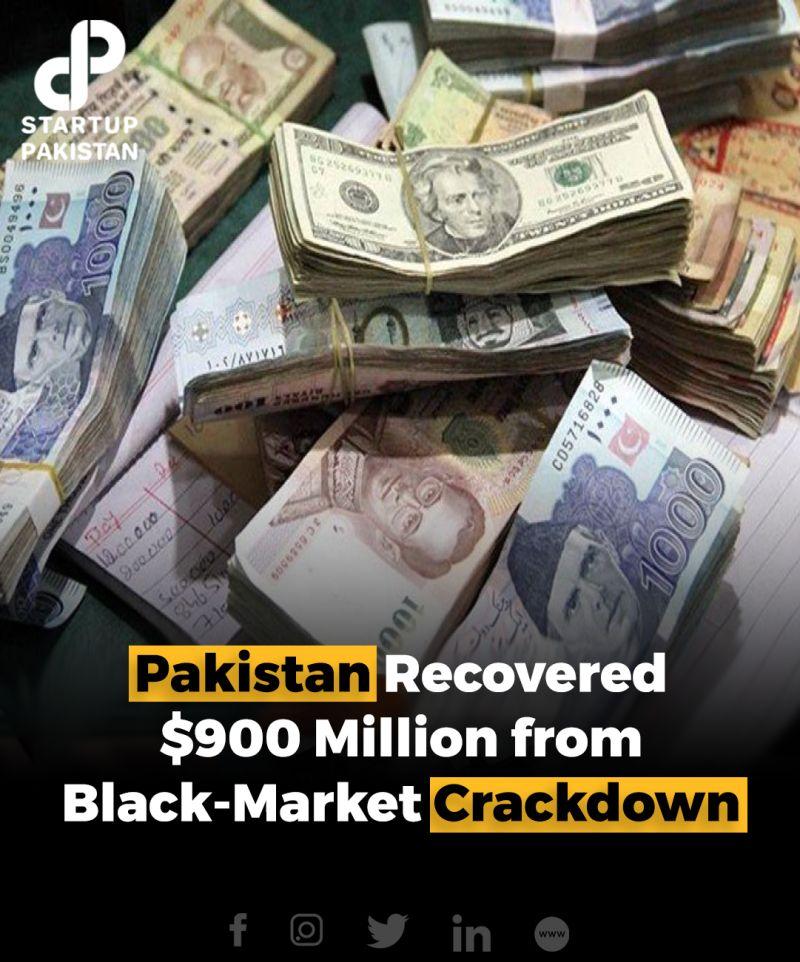If Pakistan can sustain its crackdown on shadow markets, regional stability will follow
In recent days, Pakistan has witnessed a commendable crackdown on a multitude of shadow markets in sectors including foreign currency, electricity and gas, sugar, wheat, oil, drugs and more. This concerted effort, spearheaded by the caretaker government, has yielded early results that favor consumers and the general public. Yet, amid the palpable optimism, looms a critical question: Can this drive for economic transparency and accountability be sustained once a politically elected government assumes power next year? Will politicians, who often have links to these clandestine operations, muster the courage to challenge the powerful cartels that thrive in the shadows?
At least for now the crackdown seems to be delivering results. Some may say that these are artificial steps. However recent days have seen the value of the US dollar slide downwards against the PKR. Stabilizing the inventory available for sugar and other food items also results in arresting price inflation to some extent. Reducing the quantum of illegal and informal trade from across western borders also boosts the confidence of the business community who are genuine taxpayers and willing to play by the rules.
However, the elephant in the room remains the sustainability of this drive. Before the next government comes in there is an opportunity available to the caretakers to at least leave a roadmap for key institutions which must sustain this drive or at least ensure that such rampant shadow markets do not reemerge.
For example, in the case of illegal foreign currency dealings one has to go deep and analyze why the central bank remains ineffective in curbing widely misplaced speculations. In a perfect environment and with decent capabilities, SBP can prevent the dubious money exchange companies or keep a check on forex operations of scheduled banks. It can also do more to promote financial inclusion, which would make it more difficult for people to operate in the shadow markets. SBP also needs more autonomy to carry out its mandate effectively.
Together, Islamabad, Kabul and Tehran can implement stricter border controls and share intelligence.
Dr. Vaqar Ahmed
The prevention of cross-border illegal trade in foreign currency or commodities also calls for a stronger role by customs – responsible for tracking down and prosecuting smugglers. It can also do more to raise awareness among the public about the dangers of supporting shadow markets. We also understand that the track and trace system as introduced by the Federal Board of Revenue (FBR) requires improvement. The government can strengthen the customs administration by providing it with more resources and by giving it more autonomy to operate independently.
The Federal Investigation Agency (FIA) – responsible for combating financial crime and investigating and prosecuting cases of money laundering, and other financial crimes can also do more to help the cause of curbing unfair competition. FIA needs to improve its coordination with other law enforcement agencies, both domestically and internationally. This is essential for tracking down and prosecuting money launderers and illegal currency traders, who often operate across borders.
The Competition Commission of Pakistan (CCP) also has a role to investigate and prosecute anti-competitive practices. This includes practices such as collusion, price-fixing, and market allocation. These practices can lead to higher prices and reduced availability of commodities, which can benefit shadow markets. A recent leadership change at CCP should hopefully result in a more assertive action by this entity.
Afghan transit trade is also held responsible for strengthening shadow markets. Transit trade is at times used as a cover for smuggling goods into Pakistan. This can include goods such as drugs, weapons, and counterfeit goods. Smuggled goods are often sold on the black market, where they can be sold at a higher price. Afghan traders often understate their goods in order to reduce the amount of customs duty they have to pay. This can lead to a loss of revenue for the Pakistani government and can also create an unfair advantage for Afghan traders.
Lately, there have been discussions about Iranian goods coming into Pakistan through informal channels. These goods include oil, cement, construction material, and some other manufactured items. This undercuts the prices of Pakistani manufactured goods, and makes it difficult for Pakistani businesses to compete. It calls for closer collaboration with neighboring countries, particularly Afghanistan and Iran. The shadow markets are often transnational in nature and curbing them requires regional cooperation. Together, Islamabad, Kabul, and Tehran can implement stricter border controls and share intelligence. This not only serves Pakistan’s interests but contributes to regional stability as well.
– Dr. Vaqar Ahmed is an economist and former civil servant. He tweets @vaqarahmed
Read more:
| Unlocking the opportunities for increased intra-BRICS trade |





